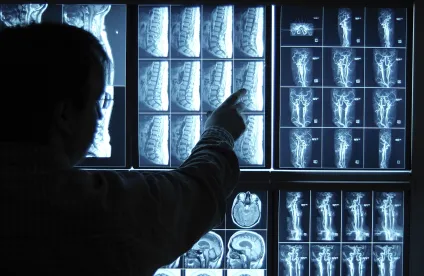Addressing the nuanced nature of trade secret protection of patented products, the US Court of Appeals for the Seventh Circuit affirmed a district court’s trade secret protection determination, finding that the asserted trade secrets were not publicly disclosed and had been adequately protected. Life Spine, Inc. v. Aegis Spine, Inc., Case No. 21-1649 (7th Cir. Aug. 9, 2021) (St. Eve, J.)
The underlying conflict, in this case, has its roots in a short-lived business relationship between two companies specializing in selling spinal implant devices. Life Spine makes and sells a device called the ProLift Expandable Spacer System. Aegis Spine contracted with Life to distribute Life’s ProLift system to hospitals and surgeons for scheduled surgeries. Under the distribution agreement, Aegis was obligated to protect Life’s confidential information, act as a fiduciary for Life’s property and refrain from reverse-engineering the ProLift system. Aegis did not abide by its contractual promises. It gave information about Life’s ProLift system to L&K Biomed, Aegis’s parent company and Life’s direct competitor. L&K used Life’s confidential information to develop a competing spinal implant device. Shortly after L&K’s device appeared on the market, Life sued Aegis for trade secret misappropriation and breach of the distribution agreement. The district court ruled in favor of Life, granting its motion for preliminary injunction against Aegis and its business partners, all of whom could no longer market the competing product. Aegis appealed.
Aegis argued that the injunction rested on the flawed legal conclusion that a company can have trade secret protection on a device that it publicly discloses through patents, displays and sales. The Seventh Circuit disagreed.
While the Court reaffirmed that there can be no trade secret protection on information available in the public domain, it found that such was not the nature of the information sought to be protected in this matter. The Seventh Circuit agreed with the district court that Life did not publicly disclose the specific information it sought to protect via patenting, displaying and selling its ProLift system.
The ProLift expandable spinal implant consists of the implant (or cage) component and an installer. The cage comprises an upper and lower endplate, a nose and base ramp and an expansion screw. The installer is used to insert the cage into a patient’s spine and expand the affected spinal disc height. Life considers “the precise dimension and measurements of the ProLift components and subcomponents and their interconnectivity” to be confidential trade secrets. The district court found that third parties are unable to access that precise dimensional information without first signing confidentiality agreements, and the information is not available in any of Life’s marketing materials (which include only dimensional approximations) or patents. Life’s ProLift system cannot be purchased by the general public or even handled at industry convention displays without Life’s close supervision. Instead, Life’s distributors sell ProLift directly to hospitals and surgeons for scheduled surgeries only.
The Seventh Circuit noted that “a limited disclosure” does not destroy all trade secret protection on a product, allowing a company to maintain trade secret protection on undisclosed “concrete secrets” of its product, even if the company has publicly disclosed other aspects of that same product. The Seventh Circuit explained that the same principle applies to public display or sales: Such activity does not result in forfeiture of trade secret protection unless the trade secret is “readily ascertainable” upon examination of the product. The Court stated that Aegis’s argument was critically flawed in treating trade secret protection “as an all‐or‐nothing proposition for a given product—either it exists, or it does not.” Since trade secret protection was sought for the specific dimensions and measurements of the ProLift product (rather than the product itself), the Court agreed that Life was only seeking to enforce a protectable trade secret.
In its appeal, Aegis relied on a US Court of Appeals for the 11th Circuit case, Roboserve v. Tom’s Foods (1991), where Roboserve lost trade secret protection on a vending machine by selling almost 1,300 machines to a company that resold them to distributors that had “no direct connection to Roboserve.” Unlike Life’s closely guarded ProLift system, “Roboserve’s vending machine was not secret because countless distributors had unlimited access to it.” In contrast, the trade secrets in issue here are only accessible to third parties who sign confidentiality agreements, the Seventh Circuit explained.
Aegis also argued that the district court “wrongly relied on a presumption of irreparable harm.” On that issue, the Seventh Circuit agreed that “the district court thought a presumption of irreparable harm attached upon a showing of likely success on a trade secret claim. And indeed, that used to be true in this circuit.” However, the Supreme Court of the United States rejected that presumption in its 2006 eBay v. MercExchange decision. The Seventh Circuit found that the erroneous application of the presumption of irreparable harm was harmless, because Life had presented evidence that it would lose market share and customers in absence of the preliminary injunction, and the district court found “some likelihood” of irreparable harm stemming from loss of goodwill and reputation, all of which was “sufficient to sustain the injunction” and did not warrant reversal.
Practice Note: This case demonstrates the nuanced nature of trade secret protection and reminds practitioners and companies alike that just because something is patented, sold and displayed, it is not automatically devoid of trade secret protection.



 />i
/>i
